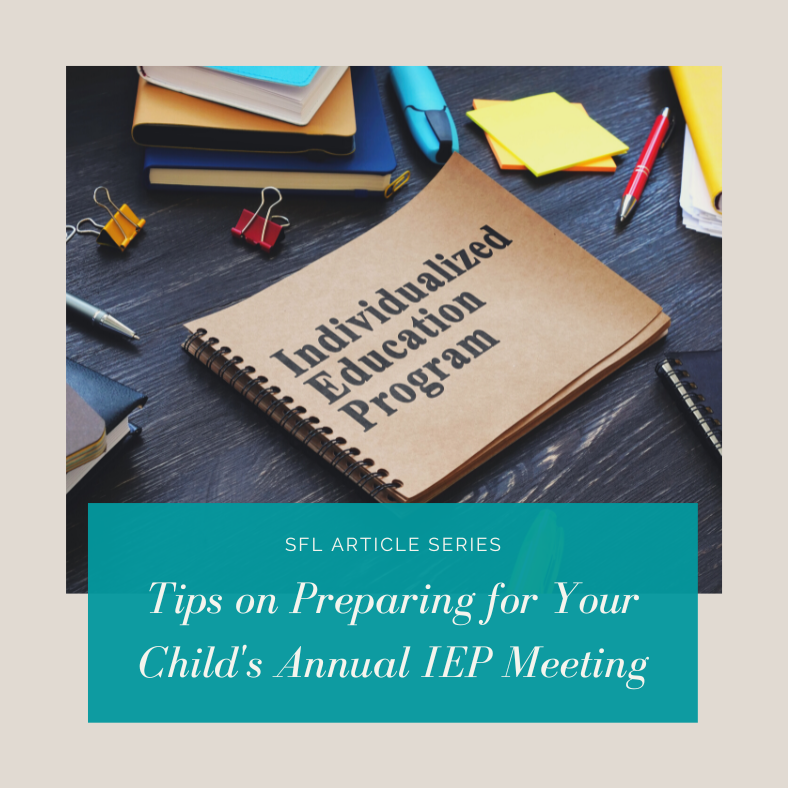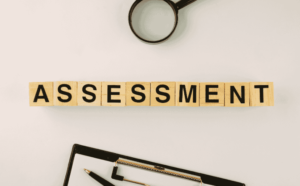No products in the cart.

Preparing for an Individualized Education Program (IEP) meeting can be a confusing process for parents and guardians who wish to advocate for their child’s educational needs. Given all of the topics covered in the average IEP meeting, the preparation of talking points can feel overwhelming to most parents. There are several actions you can take to be prepared for your child’s annual IEP meeting:
Gather information
Collect relevant documents, assessments, or reports that may provide insight into your child’s progress, challenges, and specific needs. This information can support your advocacy during the meeting.
Look over your child’s current IEP
If your child already has an IEP, familiarize yourself with the present document. Pay special attention to the sections outlining the goals, accommodations, and services your child receives. Ask yourself what has been working well throughout the school year and which areas could use more improvement.
Set goals and expectations
Familiarize yourself with grade-level standards and identify specific goals you want your child to achieve in the following year. Consider your child’s academic, social, and emotional needs. Be prepared to address these goals during the meeting.
Reach out to teachers and other professionals
Talk to your child’s teachers and other professionals who interact with your child regularly, such as therapists or counselors. Discuss your concerns, observations, and goals. Ask for their input and whether they know of any strategies that may help your child succeed at school.
Know your rights
Learn about your own parental legal rights, which you are entitled to according to the Individuals with Disabilities Education Act (IDEA). There may also be other relevant regulations in your state’s education laws. Knowing your parental rights will help you advocate at your child’s IEP meeting.
Prepare a list of questions and concerns
List any specific issues you would like to address during the meeting. This will help you to cover all of the most important concerns and help facilitate a more constructive discussion with the team.
Find an advocate
An advocate can help a parent or family by providing information about special education options and requirements. He or she can attend IEP meetings with you. A skillful advocate who knows your child’s school and its resources can often find solutions to problems that may not be obvious to the parent who does not work in the education field.
Consider your child’s strengths and challenges
Reflect on your child’s unique strengths, weaknesses, learning styles, and preferences. Share this information with the IEP team to create a comprehensive plan addressing your child’s needs.
Stay focused and positive
Maintain a constructive attitude throughout the meeting. Remember, everyone involved wants what’s best for your child’s education. Emphasize collaboration and finding solutions that benefit your child’s academic and personal growth.
Take notes
During the meeting, jot down key points, decisions, and agreements. These notes will serve as a reference for future discussions and ensure that you have a clear record of the meeting’s outcomes.
Follow up after the meeting
After the IEP meeting, review the written plan and any other documentation provided. Follow up with the IEP team if you have additional questions or concerns. Stay engaged in your child’s education and monitor their progress regularly.
Remember, you are the most influential advocate for your child. With careful preparation and active participation in the IEP meeting, you can help ensure your child receives the support they need to thrive at school. Contact us to schedule a free consultation if you are looking for individualized support around the IEP or 504 process.
Written by Stephanie Broytman, SfL Clinician, M.A






